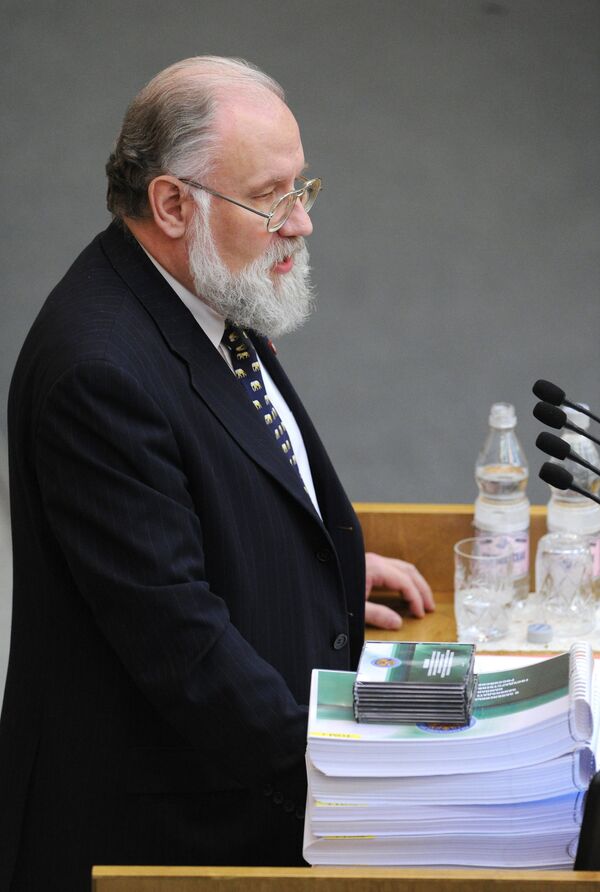Russia’s chief election official has defended his decision to bar liberal opposition leader Grigory Yavlinsky from taking part in the country’s upcoming presidential election, saying the number of violations in his application to run for the post was “shocking.”
“We didn’t expect to face such a great number of irregularities in the signatures collected in support of Grigory Yavlinsky,” Vladimir Churov, head of Russia’s Central Election Commission, said in an interview with the news magazine Itogi published on Monday. “It came as a genuine shock to us.”
Yavlinsky, leader of the liberal Yabloko party and two-time presidential candidate, was disqualified last week after officials judged that 25.6 percent of the 2 million signatures submitted as part of his application were invalid or fake.
He denied the accusations, saying the ban was a “purely political decision” aimed at preventing Yabloko from deploying its election monitors at the March 4 vote which is widely predicted to land Prime Minister Vladimir Putin with his old job in the Kremlin.
Sergei Mitrokhin, Yabloko’s chairman, said Yavlinsky’s ban was a “prologue to chaos on March 4.”
Opposition activists maintain Putin could not avoid a second round without widespread fraud. Claims of ballot-stuffing in favor of Putin’s United Russia party at the December 4 parliamentary election triggered the biggest anti-government protests seen in Russia since Soviet times.
However the prime minister remains the most popular politician in Russia, with just under 50 percent of Russians planning to vote for him, according to the state-run polling agency VTsIOM.
Billionaire tycoon Mikhail Prokhorov, another hopeful, called Yavlinsky’s disqualification “a blow to the legitimacy of the elections,” and Communist Party leader Gennady Zyuganov, seen as the only real challenger to Putin, said that it was “illegal.”
The governor of the Irkutsk region in Siberia, Dmitry Mezentev, has also been excluded from the election.
Churov, who has been under increasing pressure to resign from protesters angry with the outcome of the parliamentary polls, said the most frequent irregularities in Yavlinsky’s application included printouts of original signature lists and erroneous ID details.
But in a blog posting on Monday, Yavlinsky insisted that all of the signatures were authentic and that the printed-out lists were not “prohibited by law.”
The party encountered “unacceptable” difficulties in collecting the necessary signatures in time and collectors were forced to email a number of lists to Yabloko’s Moscow headquarters, where they were then printed out, he said on his LiveJournal blog.
He also dismissed accusations that some of the signatures were duplicated, saying the single such case that he was aware of was due to a technicality.
Yabloko failed to pass the 7 percent threshold needed to enter the State Duma, the lower house, at the December election.
The party claimed its votes were misappropriated by United Russia, which only barely managed to retain its Duma majority.


